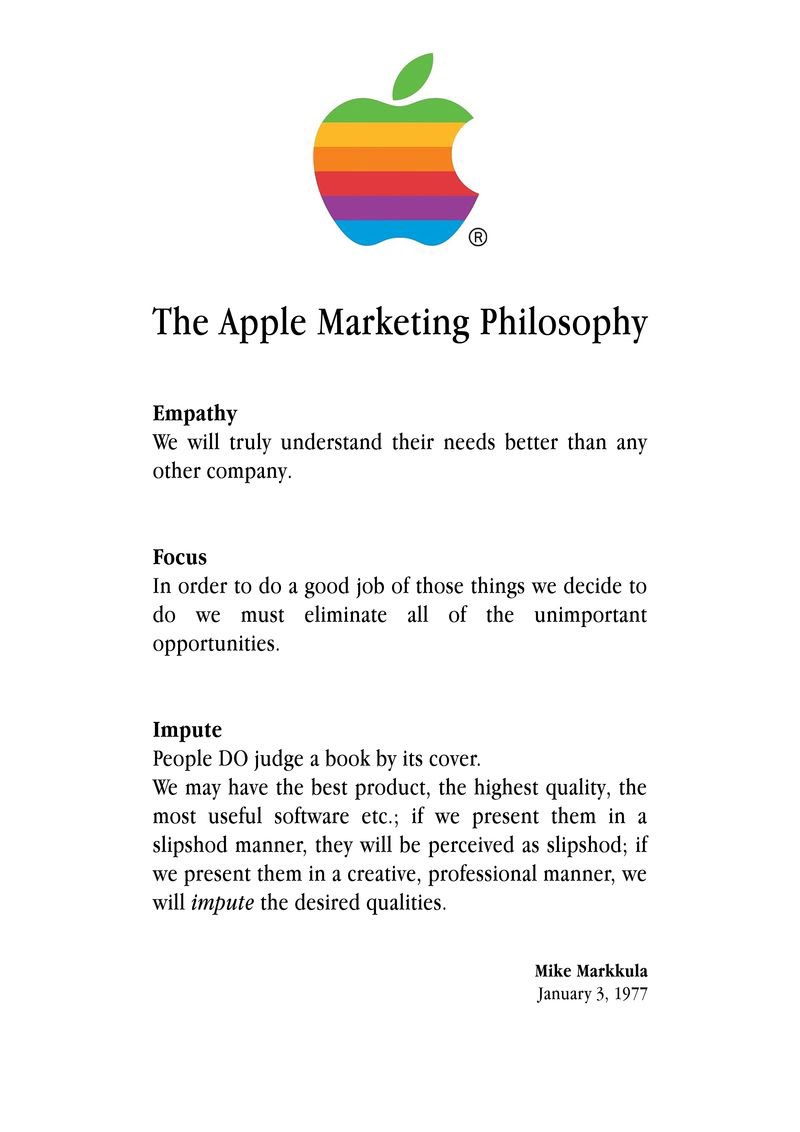Apple is not only the most valuable company in the world, but it’s also widely known for having a very unique marketing strategy. While most brands gravitate towards social media to reach customers, Apple doesn’t post on social media at all. While most brands eagerly wait for customer feedback, Apple resolutely turns off comments on social media.
All these marketing strategies might have their genesis in the Apple Marketing Philosophy. Apple was founded in 1976, and just a year later, Mike Markkula, who was the first angel investor in Apple, had come up with a Marketing Philosophy. Here is it in its full:

The Apple Marketing Philosophy
Empathy: We will truly understand their needs better than any other company.
Focus: In order to do a good job of those things we decide to do we must eliminate all of the unimportant opportunities.
Impute: People DO judge a book by its cover. We may have the best product, the highest quality, the most useful software etc.; if we present them in a slipshod manner, they will be perceived as slipshod; if we present them in a creative, professional manner, we will impute the desired qualities.
Mike Markkula January 3, 1977
It was only 100 words or so, but brilliantly captured what Apple’s marketing philosophy stood for. The first characteristic was empathy, which Apple used to be obsessed with the customer. No detail, however, small, was overlooked to improve customer experience, right from the packaging of Apple’s devices to the placements of connectors.
Apple followed the focus part of its marketing strategy as well. Unlike other companies that make a whole plethora of products, Apple makes remarkably few — its major products are iPhones, Macs, and iPads, and is makes a few accessories like iPods. Its portfolio might not be big, but it does the few things it does remarkably well.
And Apple is known for its painstaking attention to detail, and that’s where its famed marketing comes in. Apple’s ads are perfect to the last pixel; its events are closely curated to the last detail. The presentation of products that Apple carries on to this day has few equals in the modern coporate world, and make Apple the powerhouse it is today.
Most impressively, Apple followed its marketing strategy over the years. This document was written 45 years ago, but feels like it’s describing the Apple of today. Such can be the power of a written marketing strategy — if carefully document, it can guide a company to excellence for decades to come.